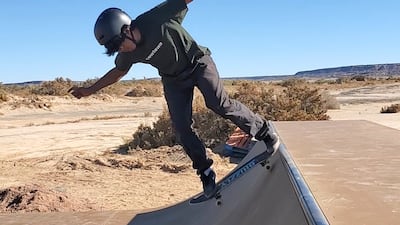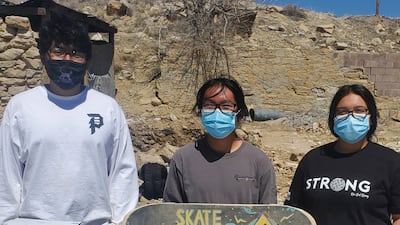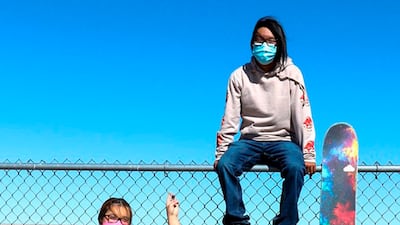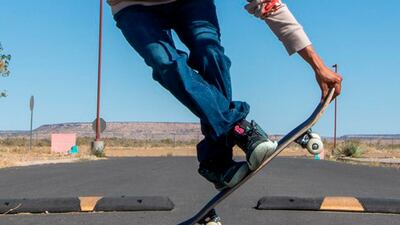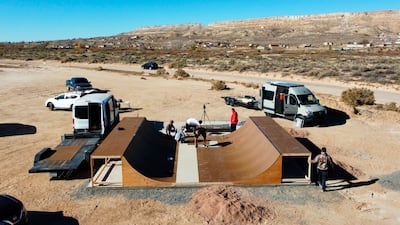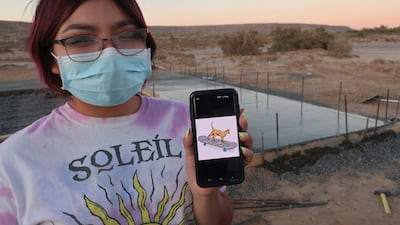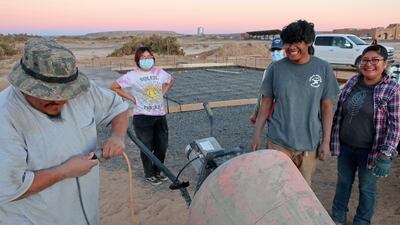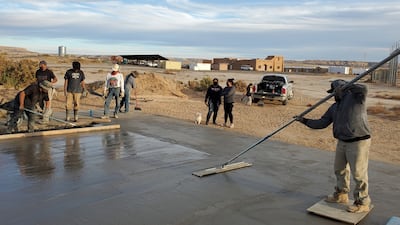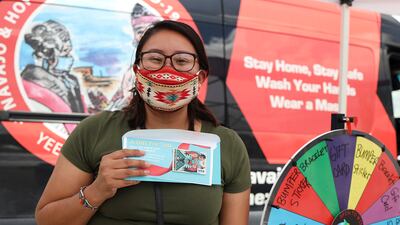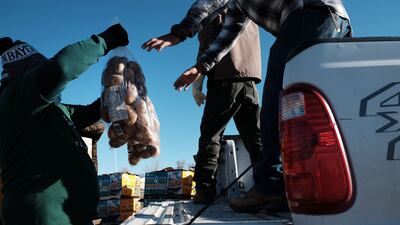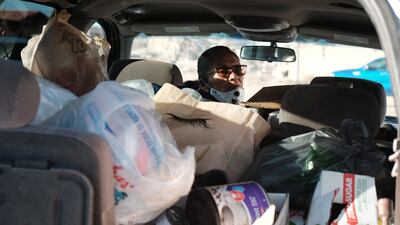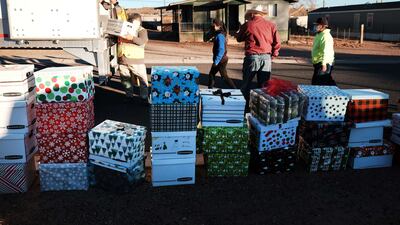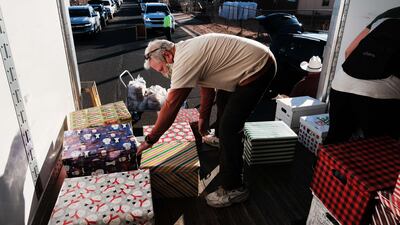They skateboarded on basketball courts and in parking lots, through intersections and down roads that twist from the mesas that rise above the high desert.
They set up tricks with old railway ties and lumber, sometimes using their own skateboards to move the materials in place. During a pandemic that led to lockdowns, curfews and mask mandates on the Hopi reservation, the solo nature of skateboarding was a comfort.
But the reservation that borders the north-east corner of Arizona lacked a designated skate spot. So a group of Hopi teenagers made it happen, seeing out a project they initially thought would take months and displaying the Hopi cultural value of “sumi'nangwa” — coming together for the greater good.
“I hope this will inspire other youth groups to try and do something like this to make the Hopi community a better place for the future generations of our people,” said Quintin “Q” Nahsonhoya, one of a handful of co-leads on the project.
The skateboarding destination opened late this spring in the Village of Tewa. It's called Skate 264 for the motorway that runs through the 6,474-square-kilometre Hopi reservation and connects its more than a dozen villages.
The teenagers first made sure the community actually wanted a skate park, so they surveyed residents who overwhelmingly supported the idea. The group received a grant for branding, sold merchandise to raise money, secured a plot of land and got materials donated through partnerships.
Kira Nevayaktewa, another member of the project, came up with the logo that features a cat named “Skategod” that was part of the crew.
Skate parks have popped up across Indian country in recent years, many of them youth-led.
Native Americans have also created their own brands of skateboards that feature traditional designs with modern twists. The sport that has indigenous roots tied to surfing has gained even more acceptance since it made its debut at the 2020 Olympics, said Betsy Gordon, who curated an exhibit on skateboarding in native communities at the Smithsonian's National Museum of the American Indian.
“That gives it legitimacy in a lot of adult eyes, people who are making the rules or who fund [skate parks],” she said. “This sense of skateboarding being outsider and niche and oppositional and dangerous, I think it's really disappearing.”
The creators of the Hopi skate spot — all teenagers when they started work on it in late 2020 — make it clear skateboarding is for everyone.
No one is too good to fall, they say in an online Wipe Out Wednesday feature.
“For Hopi, a lot of things have to do from the heart and not willing to give up,” said Terrill Humeyestewa, one of the co-leads. “The skateboard is kind of the same principle as that. Have a good mind, strong heart, think about what you’re doing it for and everything will work out OK.”
The co-leads, who also include Laela Nevayaktewa and Jacque Thorpe, got approval from the Village of Tewa for land to build the skate spot — no small feat on tribal land, where development requires approval from clans, permit holders or the larger community.

The group raised money by selling beanies, stickers and shirts at roadside stands. Q's father, Brandon, and stepmother, Valaura, served as fiscal sponsors and created partnerships with a Phoenix-area skateboard company that donated the ramp and props, and others who donated concrete for the foundation.
While safety was a priority, they said they also wanted to bring joy to others through skateboarding, stay active and avoid bad influences.
“It keeps you from doing nothing with your time, and that's how I see Hopi and skateboarding coming together, filling your days and your time with something positive,” Jacque said.
Adult mentors lent their skills for video production, photography, graphic design and organising to keep the group on track and encourage them.
“I didn’t know about skateboarding, but what I do know is community organising and local fundraising, and I have a lot of connections in the community, so I can figure it out with you guys,” Samantha Honanie, a mentor, told the group.
“If they believed in themselves, we were going to walk them through this whole process,” said Paul Molina, another mentor.
The Village of Tewa now is overseeing the park and eventually will have security guards to patrol the area.
